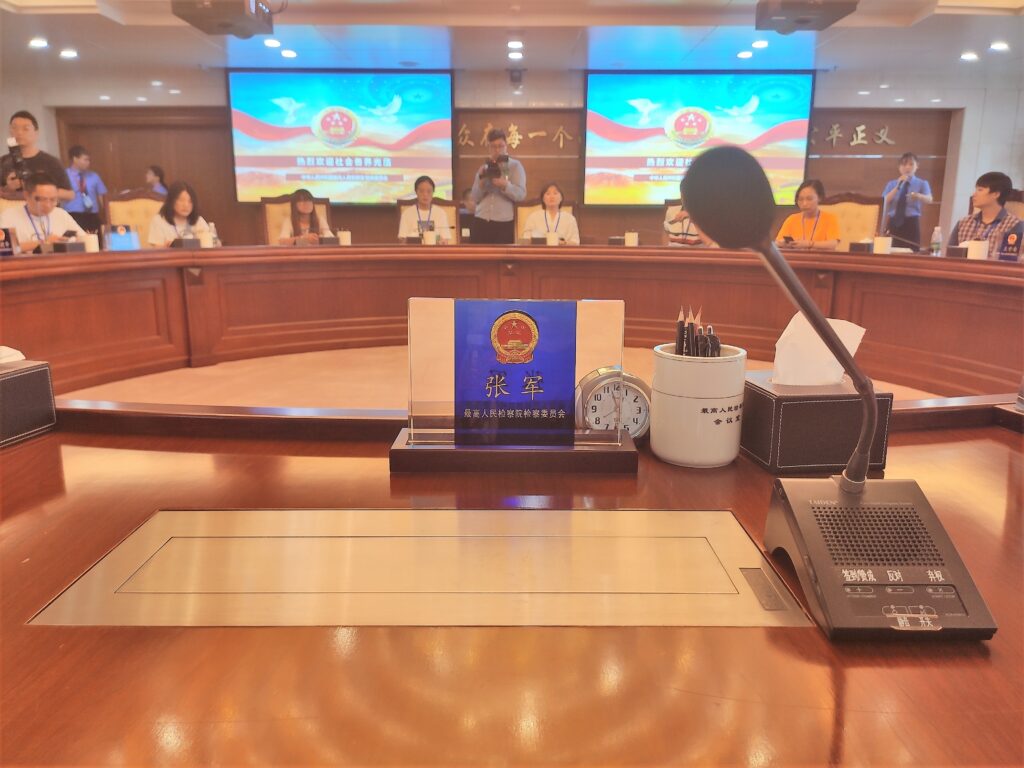A new paper by Benjamin Minhao Chen, Zhiyu Li, David Cai and Elliott Ash

What are Guiding Cases?
As a matter of doctrine, cases are not a source of law in socialist legal systems. In the People’s Republic of China, judges are generally not required to adhere to or cite prior judicial decisions. These principles have, however, been qualified—some say violated—by the Supreme People’s Court’s designation of Guiding Cases to be followed by all courts when adjudicating similar disputes.
The Guiding Case (指导性案例) system was introduced in 2011 “[i]n order to summarize adjudication experiences, unify the application of law, enhance adjudication quality, and safeguard judicial impartiality” (Provisions of the Supreme People’s Court Concerning Work on Case Guidance, 2010, English here). Guiding Cases are based on judgements selected from courts nationwide and address a wide variety of legal topics ranging from breach of contract to homicide to unfair competition to liability for traffic accidents. A Guiding Case consists of seven key sections, namely “Title”, “Keywords”, “Main Points of the Adjudication”, “Related Legal Rules”, “Basic Facts of the Case”, “Results of the Adjudication”, and “Reasons for the Adjudication”. Beginning in 2015, the “Main Points of the Adjudication” of Guiding Cases – abstract rules distilled by the adjudication committee of the SPC from the original judgments – must be referred to (参照) by courts at all levels when adjudicating similar cases (Detailed Rules for the Implementation of the ‘Provisions of the Supreme People’s Court Concerning Work on Case Guidance’, 2015, English here).
Guiding Cases have therefore been characterized by some as “a new source of ‘judge-made law’ in China” (Liu 2021) and ‘the remarkable terminus a quo’ of the trend ‘toward embracing case law’ (Wang 2020). The true impact of Guiding Cases on judicial practice has however been called into question by many legal scholars and commentators. Previous studies almost uniformly find that citations to Guiding Cases are sparse, and many Guiding Cases are not cited at all (Daum 2017; Zhang 2018). The ‘extremely low’ incidence of citations is taken as symptomatic of ‘the dysfunction of the [G]uiding [C]ase system as a type of case law’ (Wang 2019) and as proof of the incongruity of case-based adjudication in China (Ahl 2014; Zuo & Chen 2015; Finder 2017; Jia 2016).
How to measure their influence?
However, citations might not be an accurate measure of the influence of cases, especially in jurisdictions that do not recognize judicial decisions as a source of law. In our study, we re-evaluate the impact of Guiding Cases on adjudicatory outcomes by searching for instances of text reuse between the Main Points of Adjudication of Guiding Cases and the legal rationales given by lower courts.
Our premise is that reuse of text uniquely ascribable to the Main Points of Adjudication is a strong indicium of the influence of Guiding Cases on judicial decision-making. This idea is implemented by running the Basic Local Alignment Search Tool (or BLAST) algorithm to search for text reuse in approximately 3 million judgments of Shanghai and Beijing courts from January 1970 to September 2021. Matches returned by the BLAST algorithm are validated by legally qualified human coders. To make human validation of the machine-generated results feasible, our analysis is limited to two Guiding Cases identified by prior research as being among the most cited (Zhang 2020; Guo & Sun 2018): Guiding Cases 24 and 60.
To summarize, we find more instances of unattributed text reuse than citations for the Guiding Cases studied. For Guiding Case 24, the number of local court decisions that engaged in validated, unattributed text reuse is approximately four to six times the number of decisions citing the Guiding Case. Moreover, between 3.4 and 14.6% of local judgments that could have applied Guiding Case 60 cited it and between 9.5 and 11.7% of them recited language from Guiding Case 60 without acknowledging so.
A close reading of local court decisions reveals that it is not uncommon for them to cite statutory or regulatory instruments for propositions reproduced from a Guiding Case (“statutory ventriloquy”). In addition, rather than quote the Main Points of Adjudication as directed by the Supreme People’s Court’s Detailed Rules, many judgments simply repeated the various legal arguments adduced in the Guiding Case (“jurisprudential retracing”).
It appears that despite applying the Guiding Cases, local judges practice statutory ventriloquy or jurisprudential retracing to avoid citing them as a source of legal authority. Both techniques serve to maintain the dogma of legislative supremacy even as statutory law is being supplemented—and sometimes modified—through judicial initiative.
Do they really have little impact?
To conclude, previous studies report that Guiding Cases are rarely cited in judicial decisions, suggesting that their practical effect is negligible. The anemic impact of Guiding Cases has sometimes been taken as demonstrating the fundamental incompatibility between socialist legality and judicial precedent.
We demonstrate, however, that Guiding Cases are more influential than conventionally thought. The influence of Guiding Cases is not only manifested through citations; it can also be detected through the reuse of text uniquely traceable to them. By uncovering how the Guiding Cases are referred to other than by name, we not only illuminate the operation of Chinese law but also inform debates about legal traditions, cultures, and transplants.
The paper The Silent Influence of Chinese Guiding Cases: A Text Reuse Approach was published in Artificial Intelligence and Law in May 2023. The authors will present the paper at the Annual ECLS Conference in Helsinki on September 22nd. The work described in this post was substantially supported by a grant from the Research Grants Council of the Hong Kong Special Administrative Region, China (Project No. HKU
27603721).
Benjamin M. Chen is associate professor of law at the University of Hong Kong. He applies interdisciplinary methods to the study of administrative and judicial processes and institutions.
Zhiyu Li is an assistant professor in law and policy and a fellow at the Research Methods Centre at Durham University, UK. She studies the interplay between courts, technology, and politics through comparative and interdisciplinary approaches.
David Cai is a MRes/PhD student in the Economics and Management program at the LSE. He uses econometric and machine learning techniques on applied social scientific questions.
Elliott Ash is Assistant Professor of Law, Economics, and Data Science at ETH Zurich’s Center for Law & Economics, Switzerland. His research and teaching focus on empirical analysis of the law and legal system using techniques from econometrics, natural language processing, and machine learning.

